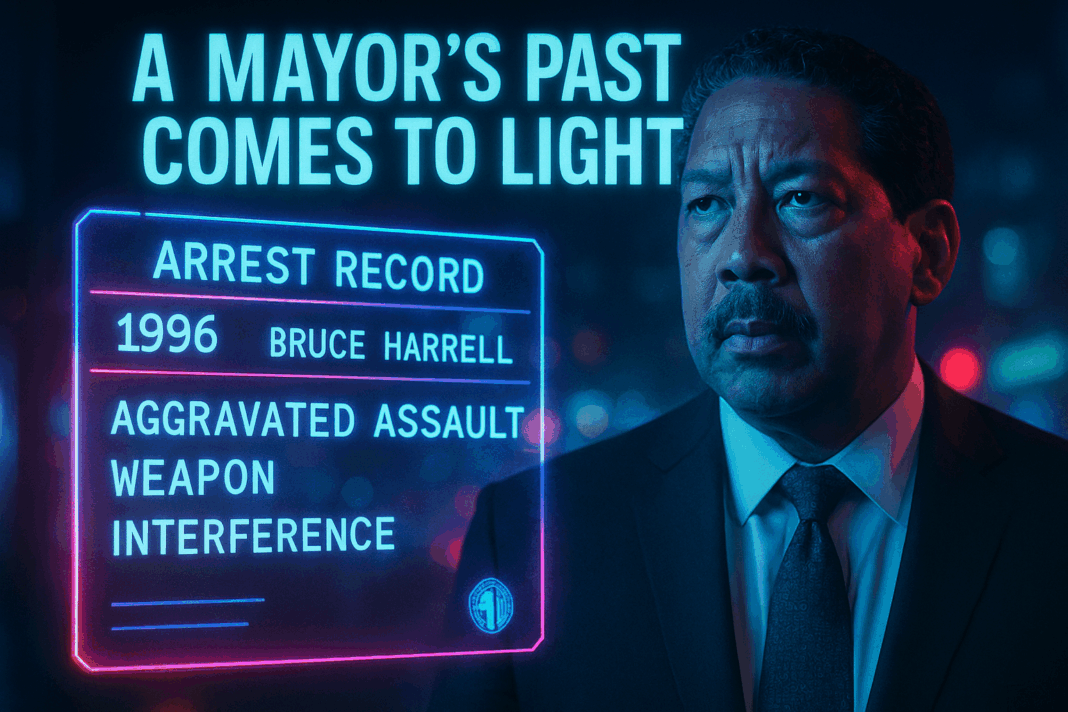A Mayor’s Past Comes to Light
Seattle Mayor Bruce Harrell’s past is making headlines again as his previous arrest records surface. Back in 1996, Harrell faced charges of aggravated assault, carrying a weapon, and interference with official acts. These charges stemmed from an altercation over a parking space at Omaha’s Ameristar Casino, where security found a .25 caliber semiautomatic pistol in his car. Although the charges were dismissed six months later, the incident has resurfaced, casting a shadow over his current leadership. Harrell has stated that the situation was a misunderstanding and claims racial profiling played a role in the incident. He explained that he carried the gun due to death threats he received after a controversial nomination. Harrell’s past experiences have shaped his political stance, particularly his advocacy for police accountability and racial equity.
Controversy at the Prayer Rally
Harrell’s leadership is under scrutiny following a clash at a Christian prayer rally in Seattle. The event, organized by On Fire Ministries, was part of the ‘#DontMessWithOurKids’ movement. However, it quickly turned chaotic as trans activists counter-protested with signs like ‘Republican Lies Kill Trans People.’ The Seattle Police Department arrested 23 individuals as tensions escalated. Mayor Harrell condemned the rally, accusing it of provoking violence by promoting beliefs contrary to Seattle’s values. He claimed anarchists infiltrated the counter-protestors, leading to the violent outbreak. Harrell’s comments have sparked debate, with some questioning his stance and others supporting his call for peace and order. The incident highlights the ongoing tensions between differing belief systems and the challenges of maintaining public safety in such charged environments.
Harrell’s Defense and Political Stance
In response to the resurfaced arrest records and recent events, Harrell has defended his actions and political views. He claims the 1996 incident was a pivotal moment that influenced his advocacy for police reform and racial equity. Harrell has been a proponent of Seattle’s bias-free policing law and initiatives like ‘Ban the Box,’ which aims to provide second chances to those disproportionately affected by the justice system. He argues that his experiences of being ‘unfairly targeted’ have fueled his commitment to these causes. Harrell’s leadership style emphasizes accountability and fairness, but his recent comments about the prayer rally have raised questions about his ability to balance these ideals with public safety and community values.
Balancing Leadership and Community Values
The events surrounding the prayer rally and Harrell’s past highlight the complexities of leadership in a diverse city like Seattle. As tensions rise between different groups, the mayor’s role in maintaining peace and order becomes increasingly challenging. Harrell’s past experiences and current political stance reflect a commitment to equity and justice, but they also draw criticism from those who feel his actions may not align with all community values. The situation underscores the delicate balance leaders must strike between advocating for marginalized communities and ensuring public safety. As Seattle navigates these challenges, Harrell’s ability to lead effectively will be closely watched by both supporters and critics.
Key Facts Worth Knowing
- •Seattle’s Mayor Bruce Harrell was arrested in 1996 for aggravated assault and weapon charges, which were later dismissed.
- •The Seattle Police Department arrested 23 individuals during a Christian prayer rally disrupted by trans activists.
- •Harrell claims racial profiling influenced his 1996 arrest, shaping his advocacy for police reform.
- •Seattle’s ‘Ban the Box’ initiative aims to reduce barriers for individuals with criminal records seeking employment.
- •The clash at the prayer rally highlights ongoing tensions between differing belief systems in diverse urban settings.



